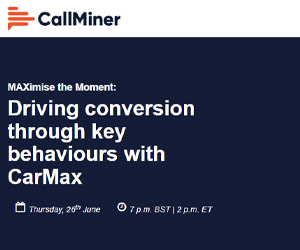Setting the context for this conversation
In an earlier post, I wrote:
When you take a look at the system that generates outcomes you will find that all human systems lack integrity; at the level of the person, the family, the organisation, the community, the nation and even the world what there is is the lack of integrity.
James Lawther, upon reading the post, commented:
Sorry Maz, I don’t understand. Why do all human systems lack integrity?
In this post, I honour the promise I made: to think on the matter and share that which has showed up for me. Before we start, I am compelled to warn you that this is a long conversation and you will only get value out of it if you really are interested in grappling with the question of integrity. Let’s start.
First, let’s be clear on ‘integrity’
In order to speak about and grapple with the phenomena of integrity it is essential to be clear on what it is that I am pointing at when I say ‘integrity’. When I say ‘integrity’ I am not talking about ‘integrity as morality’: the quality of being honest and having strong moral principles/practices. So what is this conversation about?
It is about integrity as the condition/state of being whole, complete, cohesive, unified’. Let’s be clear on this:
- If I promise to come over to your house and smash your car with sledgehammer and I turn up at your house and do exactly that then my actions are in a state of integrity with my words;
- If you gathered together all the parts that constitute a car and throw them together without ensuring that they interconnect with one another and are in tune with one another then the car is not in a state of integrity – it may work yet it is highly unlikely that the car will generate high performance, it is highly likely that it will fall far short of the ‘ultimate driving machine’.
Second, let’s consider the phenomena
Now look into your lived experience devoid of theory-opinion-dogma and ask yourself if the individual human being shows up as being in a state of integrity? What about the family – is there a state of integrity operative at the level of family? The organisation – is there a state of integrity operative here? The community? The nation?
Is there a state of wholeness-completeness at the level of the individual human being? Sure? Ask yourself if the values you profess are the values that you embody-live? What about the family, is there wholeness there? Ask yourself how many families work well? In how many families is there respect, consideration, love and communication? How many families are happy families? At the organisational level, ask yourself how well management and the workers work together? How about the interplay between the front office and the back office? What about the fit between the talk (espoused values) and that which is in play on a day to day basis (lived values)?
If after this you are still convinced that integrity (whole-complete-unified) is the default condition then take a look at the education system, the healthcare system, the financial system, the legal system, the political system. How well are these working in your country?
Having so looked at the phenomena – ‘that which is as it is and is not’ – I am clear that the default condition of ALL human systems is a lack of integrity. If you disagree then I ask you to consider
What is the explanation for the pervasive lack of integrity in human systems?
Let me say that I do not have the one answer to this question. And that which I share here is simply my thinking on what may be the threads of an explanation.
1. Design of the human being at the level of the system
It occurs to me that at the level of the design of the system that we call ‘human being’ there is a lack of integrity. Rather than there being one unified self it appears that there are a multiplicity of competing selves. Do you find yourself doubting my assertion?
Look at the phenomena. What do you see? Do you see that there is a self that is keen to be slim? And there is the self that loves all the ‘wrong foods’ from a ‘being slim’ perspective. What about the self that wishes to be athletic and gets the value of exercising. And then there is the self that is addicted to being comfortable, sat on the sofa watching TV for hours. Is there not a self that yearns to speak its truth. And then there is the self that ensures that only that which is politically acceptable is spoken…..
Yet this is not an excuse and not the whole picture. After all, we are not designed to fly and yet do so safely, through the inventions and practices of aviation. So let’s continue the exploration and ask ourselves why it is that we have not put in place practices that call forth integrity.
2. Not being present to the importance of integrity and the impact of being out of integrity
“Our way of being and our actions are a correlate of the way in which the circumstances we are dealing with occur (show up) for us”.
– Werner Erhard
Do you/I/we truly get (at the experiential level not the cognitive level) the value of operating in a state of integrity and the impact of lapses in integrity? It occurs to me that the answer for most of us – as expressed through our living – is that we are blind to the true impact of violations of integrity. This became clear to me on a driving awareness course.
All of us were on this course because we had been caught breaking the speed limit. Did any of us feel guilty? No. Why? For my part, I found myself feeling sorry for myself and blaming the police for focusing on folks like me rather than the proper villains. Why? Because I had been only doing 36mph in a 30mph zone: “What’s the big deal! What difference does 6mph make?”
The turning point came when I learned the impact of that extra 6mph. That 6mph is the difference between life and death. Turns out even an extra 3mph is the difference between a pedestrian walking away relatively unharmed and spending the rest of his life badly damaged. To bring the point home, in the only way it can home, we were shown a film showing the human impact of speeding. This had such an impact on me that I left this course with the commitment to drive safely and that is what I do. If I catch myself exceeding the speed limit, guilt is present, and the presence of this guilt is enough to get me mindful and respectful of the speed limit.
We assume that it makes no difference if we turn up five minutes late for a meeting. Yet it does. We assume it makes no difference if we tell ‘little lies’ to customers. Yet it does. We assume that it makes no difference if we push employees around and take advantage of their weakened position to get more out of them. Yet it does. We assume that it makes no difference if we push around our suppliers and squeeze them to drive up our bottom line. Yet it does make a difference.
3. Lack of willingness to put in place mechanisms and listen to feedback that points out a lack of integrity
It starts in the family. The child points out of the lack of integrity between what the parent is preaching and what the parent is embodying-living. One response is “Do as I say not as I do”. Another kind of response is a slap on the face or some kind of punishment like that. The third kind is to ignore the child, to pretend that you have not heard anything, and continue as before. In all three cases, the child learns the message. Be quiet, don’t rock the boat, don’t upset the authority figures. And so the child muddles through as best as s/he can.
Put bluntly, there is an unspoken agreement not to ‘speak truth to power’. Breaking this agreement is no easy matter and as such only a few brave souls do so. When you break the unspoken agreement not to threaten the status and power of those in power then you put yourself in a vulnerable position. The powerful and their allies turn their guns on you and target your livelihood, your reputation, your social status, your freedom and even your life.
There is an excellent example of this unwillingness to listen to feedback and the consequences for those who speak ‘truth to power’ pointing out the lack of integrity of the system.
The NHS will “go bust” without radical change to drive up standards and rid hospitals of a “toxic” bullying culture that damages patient care, the head of its official regulator has warned.
David Prior, the chairman of the Care Quality Commission (CQC), says the safety of the most vulnerable patients is being jeopardised by a “dysfunctional” rift between NHS managers and clinical staff…..
He discloses that one in four staff have reported bullying, harassment or abuse from colleagues and managers, while whistleblowers are ostracised……
Mr Prior highlights the treatment of whistleblowers, saying the NHS is failing to listen to those who challenge poor care and champion the rights of patients. He says those who try to speak out are too often “ostracised” by their colleagues and managers.
He writes: “Too often, it delights in the ritual humiliation of those deemed to fail, tolerates and institutionalises outdated working practices and old-fashioned hierarchies and can almost encourage “managers” and “clinicians” to occupy opposing camps…..
Soon after Mr Prior took up his post as CQC chairman last year, the regulator’s previous management was accused of a “cover-up” and failing to properly investigate hospital scandals because it was too close to the last Labour government…..
“Perhaps most crucially, we need to change the culture.”
Even when there is no power to speak truth to, we do not speak truth: we don’t call people on their lack of integrity. Why not? There is another unspoken agreement: “You don’t call me on mine, and I won’t call you on yours!”. We are socialized into this early on with instructions to mind our own business and not to poke our nose into the affairs of others. Furthermore, from an early age we are actively pushed to tell people what they want to hear and/or what will ‘save face’. This becomes so much a part of us and our way of showing up in the world that we don’t even notice how much of social life, in all its favours, is based on this way of showing up.
4. The powerful ensure that they are immune from the impact of systems that lack integrity
As I reflect on the impact of systems that lack integrity I am struck by what is so: the powerful almost always profit and at worst walk away unscathed and the powerless are struck with the impact-costs-wound arising from the lack of integrity.
Who suffers most from the impact of poor teaching and poor schools? The powerless – the children. Who has suffered most from the lack of integrity (through and through) in the NHS? The powerless, the vulnerable – the patients. Who has suffered as a lack of integrity in the world of finance? The powerless – those who have the lowest incomes and the least political clout. Who is most likely to suffer from our way of living and the impact on the world that is our home? The powerless – the unborn, the future generations.
Summing up
It occurs to me that all human systems exhibit a lack of integrity. And that the reason that this lack of integrity continues to persist is because we have not put in place cultural practices to call forth integrity and keep it in existence: detecting lapses in integrity and correcting course promptly to put the system back into a state of integrity.
Why haven’t we put these cultural practices into place? It occurs to me that despite the lack of integrity in human systems we have successfully muddled through. In so muddling through, most of us do OK, and the powerful do great most of the time. Look at the business world: despite all the scaremongering (by those who hope to profit by selling their products-services) most organisations have muddled through all the ‘challenges and dangers’: they are doing OK. Look at the banking crisis: we have muddled through. Look at the Euro crisis: we have muddled through. Every time we muddle through we reinforce our addiction to muddling through. Look under the hood of ‘business transformation’ and on most occasions you will find plain old-fashioned incremental change.
We do not put integrity into our way of being-showing up in the world because like thinking, genuine thinking, it is hard work. More importantly, it is hard work that never ends. Why? Because integrity is always flowing out and so we have to be always putting it back in. Then there are people like Jobs who set out to make a dent in the universe and accept nothing less. Or people like Gandhi who set out to set India free and accept nothing less. Or people like Mandela……
Author: Guest Author
Published On: 18th Feb 2014 - Last modified: 30th Nov 2023
Read more about - Archived Content, James Lawther


























